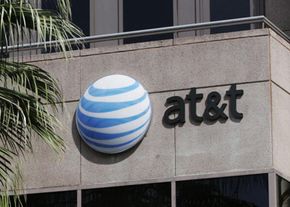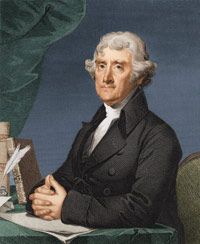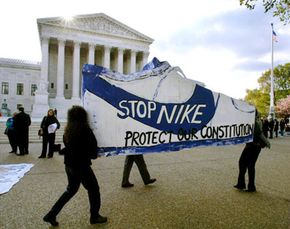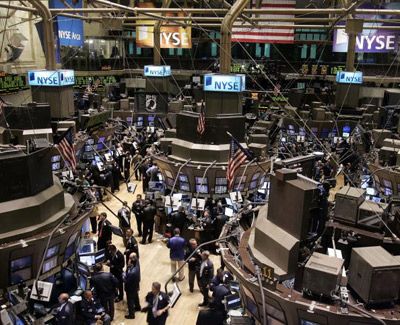There's a term that describes a situation when a court makes something out of nothing: It's called legal fiction. This jargon refers to the law's ability to decree that something that's not necessarily true is true. It's somewhat like a person in a discussion agreeing to accept an opinion as fact for the sake of argument in order to move the discussion along. Legal fiction helps to move proceedings along.
A sterling example of legal fiction is what's called corporate personhood. Think about it: A corporation isn't a person. It's a business, a pool of investors' money used to conduct transactions and hopefully make a profit. But in order to determine the legality of business proceedings, the legal fiction of treating a corporation as an artificial person was created.
Advertisement
This concept isn't new. In ancient Roman law, a corporation was considered a juristic person: a single, nonhuman entity that legally represented a group of many people [source: Sherman]. The idea makes sense; after all, a corporation is made up of people's financial contributions.
But a corporation is more superhuman than human. It can function beyond the natural limits of age that govern humans, and as such can produce dividends for its investors, whose stock certificates can be willed and passed down as part of their estates. A corporation doesn't die with its originator -- it can live indefinitely (so long as it's profitable). Nor does a corporation need the same things that an actual person does. Corporations don't require food or water, and they can't feel pain [source: Hartmann].
The laws that govern people take our human weaknesses into account. For example, our prison system is designed to incarcerate the human body. You can't imprison a corporation, though. So granting human treatment to nonhuman corporations is tricky: It's like breathing life into a superhuman that can't feel pain and, after setting him free, hoping for the best.
It would make sense that in dealing with corporations, the United States would tread lightly and limit the power that these artificial persons have. This hasn't necessarily been the case, however. In fact, in the United States, corporations have the same protections under the Constitution that humans do. Find out how this happened on the next page.
Advertisement




